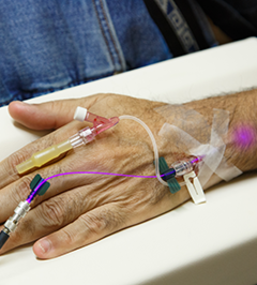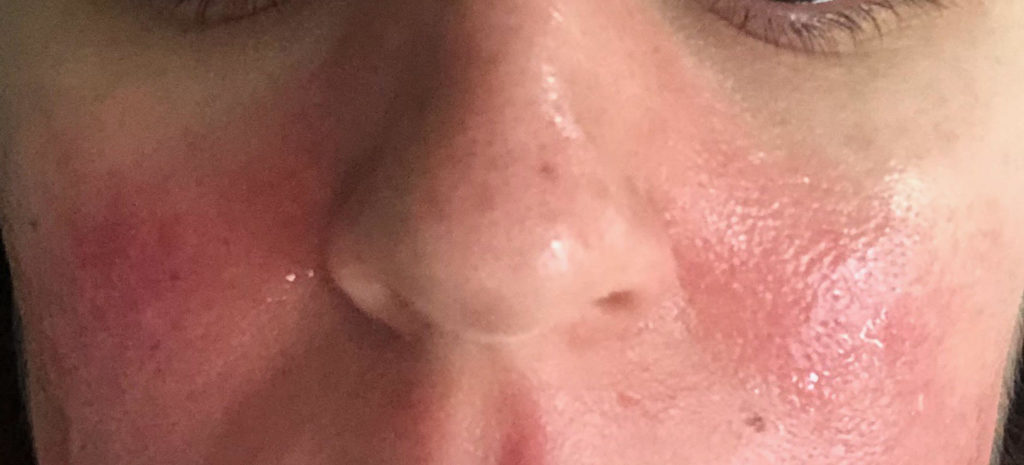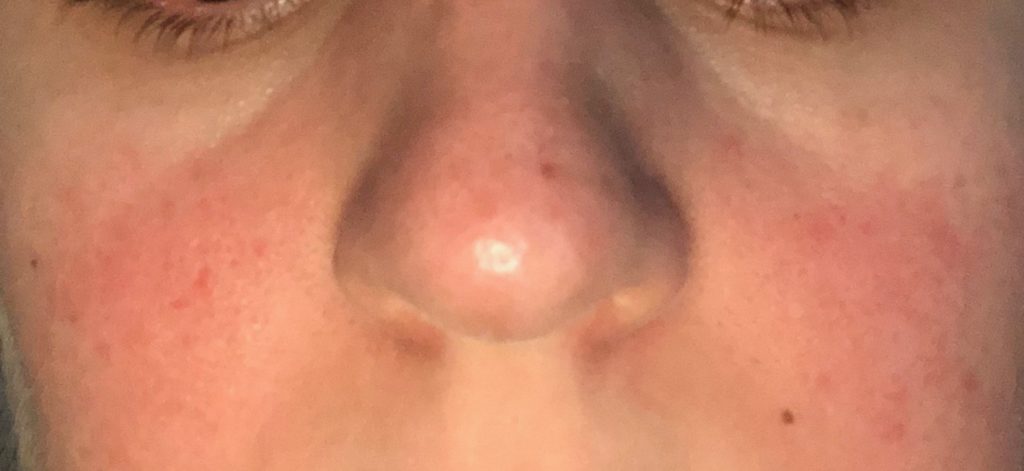PDT: PhotoDynamic Laser Therapy
Photodynamic Therapy (PDT) is a well established, FDA-approved therapy for cancer and non-cancerous conditions. Recent evolution of both bio-physics and the bio-chemistry have expanded this tool into many everyday conditions in our Center.
Photodynamic therapy (PDT) is based on stimulating a light-sensitive substance (photosensitizer) with a specific wavelength (color) of light to excite that molecule.
After excitation, these stimulated substances can be leveraged for biological benefit, i.e., to catalyze healing; or, to impair intra-cellular processes of diseased cells.
A ‘ substance–light-wavelength pair ‘ can be chosen to stimulate intracellular regenerative processes, or to induce infected cells or cancer cells to die. In the case of cancer and anti-microbial therapy, this can be done without deleterious effect on healthy cells.

In Photo-Dynamic Therapy (PDT), activation of safe, non-toxic photo-sensitizers with simultaneous intra-venous laser activation (note the blue laser light extending into the vein) produces a synergistic effect in both disease control and healing.
Photo-Dynamic Therapy is especially valuable to avert the usual toxicity of typically used pharmaceuticals, especially in cancer chemotherapy with high likelihood of adverse toxic effects, or in protracted anti-microbial therapy as in Lyme Disease.
Because specific-wavelength light therapy has demonstrated benefit in treating bacterial, viral and parasitic diseases, leveraging the synergy between specific-wavelength laser light and coupled non-toxic photo-sensitizers, multi-resistant pathogens can be successfully combated.

Rosacea before Photo-Dynamic Therapy (PDT)

Rosacea after three 15min Photo-Dynamic Therapy sessions in 1 week.
We are currently using PDT to assist the following conditions:
- anti-microbial resistant infections (MRSA), chronic viral conditions, Chronic Lyme
- chronic skin conditions (psoriasis, rosacea, acne)
- auto-inflammation and auto-immunity
- brain issues (Alzheimers, Parkinson’s disease, Pituitary Adenoma)
- ADHD, ADD
- Chronic Fatigue
- Brain fog
- Chronic Pain Syndrome
- decreasing circulating metastatic cancer cells in the blood
- specific types of cancerous tumors
To see if you are a candidate for this therapy, click the button below.

